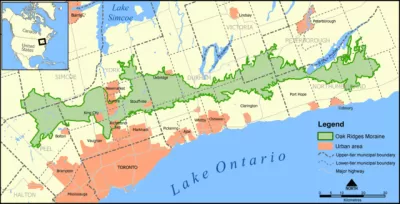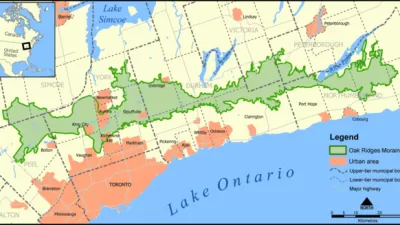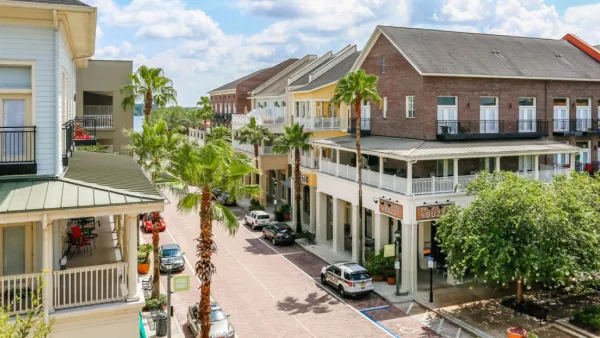A proposed bill would open nearly 2 million acres of protected land to commercial and industrial development.

TVO reporter John Michael McGrath sounds the alarm on a proposal to deregulate development in the environmentally protected Toronto Greenbelt. The Greenbelt was created in 2005 and is considered a landmark achievement for smart growth in Canada, as well as being popular with Ontario voters.
In May, then-candidate and now Premier Doug Ford suggested that he would open the Greenbelt to affordable housing development. But the actual legislation proposed—the sweeping Bill 66, to be debated in the Ontario Legislature next year—takes a different tack. "The intent is to attract major employers to the province and allow them to speed through municipal-planning approvals for such developments as factories and office parks — the changes are not intended to speed the development of housing," McGrath notes.
The bill would allow municipalities to create "open for business" zoning bylaws where commercial projects could bypass major provincial environmental and planning legislation. Projects could be exempted not only from laws designed to curb sprawl, like the Metrolinx Act, the Places to Grow Act, and the Greenbelt Act, but also from laws governing clean water and waste—including the Clean Water Act, Great Lakes Protection Act, and Resource Recovery and Circular Economy Act. It will be debated when Ontario's legislative session resumes in February 2019.
FULL STORY: Tories’ bill could punch factory-sized holes in the Greenbelt

Maui's Vacation Rental Debate Turns Ugly
Verbal attacks, misinformation campaigns and fistfights plague a high-stakes debate to convert thousands of vacation rentals into long-term housing.

Planetizen Federal Action Tracker
A weekly monitor of how Trump’s orders and actions are impacting planners and planning in America.

In Urban Planning, AI Prompting Could be the New Design Thinking
Creativity has long been key to great urban design. What if we see AI as our new creative partner?

King County Supportive Housing Program Offers Hope for Unhoused Residents
The county is taking a ‘Housing First’ approach that prioritizes getting people into housing, then offering wraparound supportive services.

Researchers Use AI to Get Clearer Picture of US Housing
Analysts are using artificial intelligence to supercharge their research by allowing them to comb through data faster. Though these AI tools can be error prone, they save time and housing researchers are optimistic about the future.

Making Shared Micromobility More Inclusive
Cities and shared mobility system operators can do more to include people with disabilities in planning and operations, per a new report.
Urban Design for Planners 1: Software Tools
This six-course series explores essential urban design concepts using open source software and equips planners with the tools they need to participate fully in the urban design process.
Planning for Universal Design
Learn the tools for implementing Universal Design in planning regulations.
planning NEXT
Appalachian Highlands Housing Partners
Mpact (founded as Rail~Volution)
City of Camden Redevelopment Agency
City of Astoria
City of Portland
City of Laramie





























